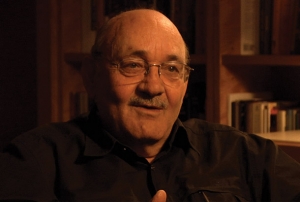The weekly report on the SPI Fellows
by Johnny Monsarrat
This week we feature two of our SPI fellows, experts in Middle East public policy and creative uses for evolutionary theory to study democracy and the cultural transmission of cooking practices.
 SPI Fellow┬áAmatzia Baram is Professor of┬áMiddle Eastern History at the University of Haifa, Israel. He recently wrote that ISIS must be defeated financially, because they are the “richest Islamic terrorist organization in history, richer even than the dreaded Assassins of Alamut Mountain, who terrorized the Islamic world and the Crusaders between the 11th and 13th centuries.” He also wrote that ISIS, a large entity, can be defeated┬áone tribe at a time. He supports Turkish gas independence from Russia, which a gas pipeline through Northern Iraq may facilitate.
SPI Fellow┬áAmatzia Baram is Professor of┬áMiddle Eastern History at the University of Haifa, Israel. He recently wrote that ISIS must be defeated financially, because they are the “richest Islamic terrorist organization in history, richer even than the dreaded Assassins of Alamut Mountain, who terrorized the Islamic world and the Crusaders between the 11th and 13th centuries.” He also wrote that ISIS, a large entity, can be defeated┬áone tribe at a time. He supports Turkish gas independence from Russia, which a gas pipeline through Northern Iraq may facilitate.
He contributed to the SPI World Future Guide 2016 his thoughts on dictatorship vs. theocracy. Which is worse? How are they different? And he is the author of the 2014 book, Saddam Husayn and Islam, 1968-2003: Ba`thi Iraq from Secularism to Faith.
 SPI Fellow Patrik Lindenfors is┬áAssociate Professor of Zoological Ecology at Stockholm University in Sweden. In 2015 he published several papers, including how evolutionary theory affects the study of democracy, how cooking is passed culturally from one generation to the next, another paper on cultural transmission of cooking, and how women’s rights affect a developing country’s transition to democracy, in┬áNo Democratic Transition Without Women’s Rights: A Global Sequence Analysis 1900-2012.
SPI Fellow Patrik Lindenfors is┬áAssociate Professor of Zoological Ecology at Stockholm University in Sweden. In 2015 he published several papers, including how evolutionary theory affects the study of democracy, how cooking is passed culturally from one generation to the next, another paper on cultural transmission of cooking, and how women’s rights affect a developing country’s transition to democracy, in┬áNo Democratic Transition Without Women’s Rights: A Global Sequence Analysis 1900-2012.
He contributed to the SPI World Future Guide 2016 his thoughts on religion’s role in health, which while historically┬áfraudulent can sometimes be effective.
